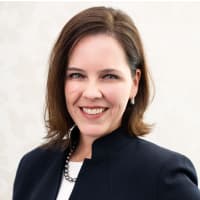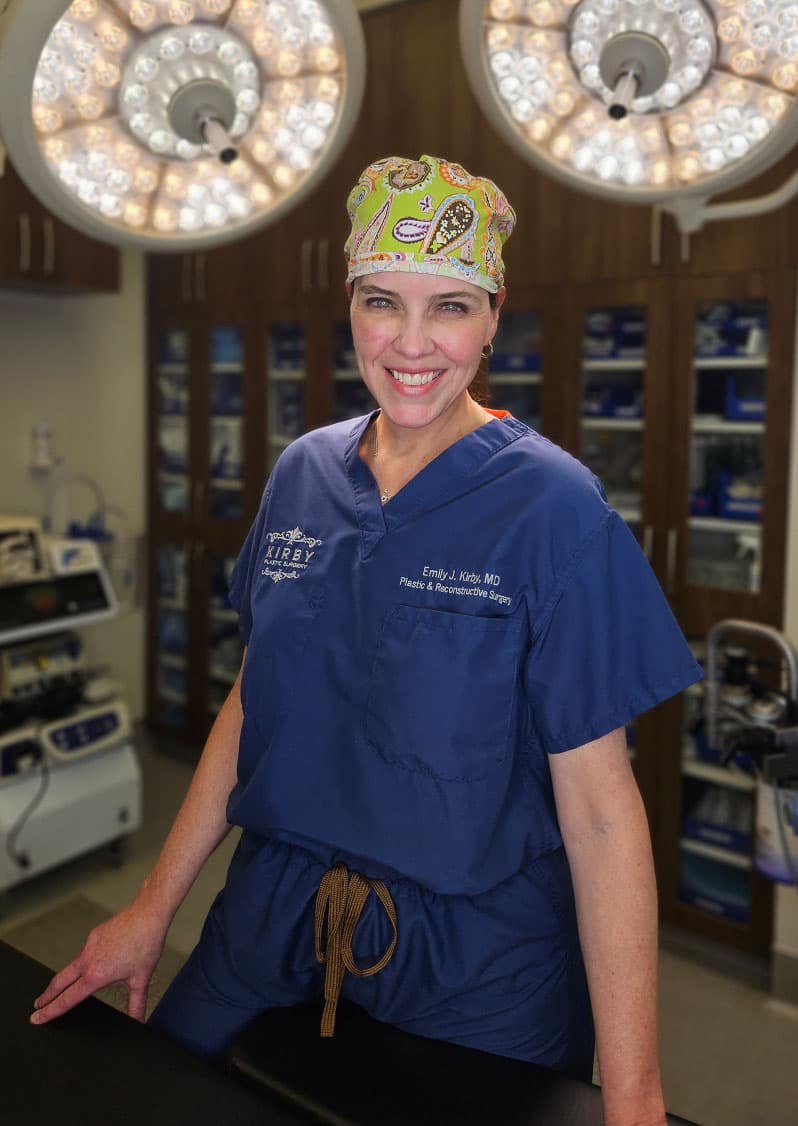Pediatric & Craniofacial Surgery Fort Worth

Board Certified Plastic Surgeon Dr. Emily J. Kirby offers a number of pediatric and craniofacial surgeries for children in Fort Worth. Dr. Kirby has specialized fellowship training in craniofacial surgery and extensive experience performing pediatric procedures.
Pediatric surgery
Ear reconstruction (Microtia)
Some children are born with ears that are not fully formed. Microtia, or underdeveloped ear, and anotia, or absent ear, are variable in their appearance. The condition may or may not be associated with hearing loss. Ear reconstruction is performed using rib cartilage in several stages.
Ear pinning (Otoplasty)
Otoplasty, or ear reshaping/pinning, is a common operation performed to correct prominent ears. Children entering school can benefit greatly from the improved self-esteem this surgery provides. Adults with old ear injuries and children with other ear defects present at birth (“lop ear,” “Stahl’s ear,” “constricted ear,” “cup ear,” or “cryptotia”) are also candidates for otoplasty.
Infant ear molding
Infants born with ear abnormalities (prominent ears, “lop ear,” “Stahl’s ear,” or “constricted ear,”) can be treated within the first six weeks of life by molding the ear cartilage. Molding the ear at this age may avoid later surgical correction of the ear(s).
Female Plastic Surgeon Fort Worth
- Board-Certified Plastic Surgeon
- Over 14 years of experience in private practice
- Founder and Medical Director of Kirby Plastic Surgery, Kalos Medical Spa, and City Surgery Center—a Quad A-accredited, state-of-the-art facility located onsite
- Specialist in breast surgery and body contouring, including postpartum
- Castle Connolly Top Doctor since 2019
- First female Chief of Plastic Surgery, Texas Health Resources Harris Methodist Hospital
Congenital breast differences
Breast asymmetry may be caused by a congenital anomaly, present at birth. Poland Syndrome is a common cause of breast asymmetry, involving chest wall, arm, and breast abnormalities. Reconstruction using implants, muscles, or soft tissue can be used to create a breast.
Hemangioma
Hemangiomas and lymphangiomas are the most common benign (non-cancerous) tumors of the skin in infants. They may be present at birth or they may appear later. Some hemangiomas may disappear in the first few months of life. Others may grow quickly and disappear years later. Removal of the hemangioma using laser or surgical excision may be advised.
Cleft lip repair
A cleft lip can occur with or without a cleft palate, and there is great variability in the severity of clefts that we see. Cleft lip repair is performed very early in your child’s life in order to improve his/her ability to eat, breathe, speak, and hear more normally. The surgery brings the abnormally formed edges of lip tissue together and helps reshape the cleft nasal deformity.
Cleft palate repair
A cleft palate can occur with or without a cleft lip and, much like cleft lips, there is great variability in the severity of clefts that we see. If your child has both a cleft lip and a cleft palate, the cleft palate repair is performed after the cleft lip repair. Repair of the palate will help your child develop more normal speech and eat more efficiently while realigning the eustachian tubes for improved function.
Craniosynostosis surgery
Craniosynostosis is the premature closure of one or more spaces between bones (sutures) of the skull, resulting in abnormal head growth and shape. Surgery to repair this condition is called “cranial vault reconstruction,” and is typically performed with a pediatric neurosurgeon. Following surgery, a special helmet is often prescribed to help fuse the skull together and enhance its appearance.
Flattened heads (Plagiocephaly)
Abnormal head shape can result from pressure routinely placed in the same position on an infant’s head. “Flattened Head Syndrome,” or “Positional/Deformational Plagiocephaly” is more common since the American Academy of Pediatrics began recommending that infants sleep on their back. Although this has greatly decreased the incidence of Sudden Infant Death Syndrome (SIDS), it has increased plagiocephaly. Some infants are unable to adequately turn their heads due to torticollis, or tightening of the neck muscles on one side. Though plagiocephaly typically does not require surgery, helmet therapy and/or physical therapy may be recommended for your child.
“Thank you so much for all the work you have done. You did a wonderful job and I appreciate it so much.”
Skull deformity correction (Cranioplasty)
Contour irregularities and defects of the skull can be reconstructed during cranioplasty surgery in order to smooth out the head shape.
Facial fracture repair
Facial fractures can occur in children for a variety of reasons, the most common of which include falls, being struck by a blunt object, sports injuries, and motor vehicle accidents. Although many fractures heal quickly with no complications, surgery may be required. Dr. Kirby repairs facial fractures in Fort Worth by restoring broken pieces to their proper position (called “reduction”) and supporting the broken pieces until they have rejoined and the fracture has healed (“fixation”).
What to expect at your consultation
Your child’s consultation takes about one hour. You’ll spend most of that time with Dr. Kirby discussing your goals, concerns, and questions, and learning how Dr. Kirby tailors the procedure to address each of these. You’ll also get to meet our nursing staff who will take your vitals and review your family medical history, and our patient care coordinator will schedule the procedure and help guide you through the process from start to finish.
Dr. Emily Kirby ensures that every plastic surgery patient receives Enhanced Recovery After Surgery (ERAS) care to optimize recovery time and minimize pain. Dr. Kirby uses innovative pain reduction techniques, such as numbing anesthetics and small doses of different types of medications, to reduce discomfort from many angles.
“Dr. Kirby has created the most amazing experience. She is thorough and intuitive, sincerely cares about the work she does and perfectly marries listening to what you want and what science says.”
—Actual patient
Learn more about pediatric & craniofacial surgery with Dr. Emily J. Kirby
- Discuss your goals and concerns
- Obtain an expert perspective
- Review convenient financing options
- Call or TEXT (817) 292-4200 or contact us today!
Area Served:

Medically reviewed by Dr. Emily J. Kirby — Updated on Jan 13, 2025
